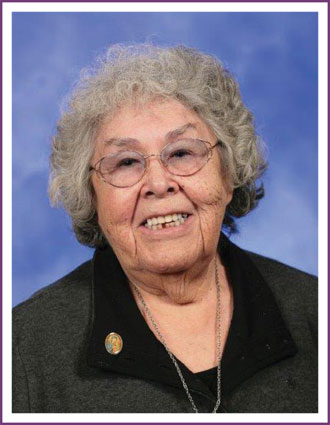ALICE (Snigaroff) PETRIVELLI, "Sniggy"

• Advocacy For Aleut People
Inducted: 2016
Deceased: 2015
ALICE (Snigaroff) PETRIVELLI, "Sniggy"
Alice Petrivelli will be remembered as a strong advocate for the Aleut people. Her fundamental goal was “protecting the land and our culture.”
Born in Atka in 1929, Petrivelli lived a traditional lifestyle, learning from her father after she lost her mother when she was five years old. During WWII, her entire village was relocated to Killisnoo Island in southeastern Alaska and this Aleut relocation experience fueled her efforts to secure reparations from the United States for the relocation and internment of 881 Aleut people during the war. She attended Wrangell Institute and Mount Edgecombe boarding schools and graduated from Haskell Institute in Lawrence, Kans., with an associate’s degree in Business Administration. After college, she met Frank Petrivelli, became an Army wife, and raised six children.
The family returned to Alaska in 1969 and Petrivelli started working at the Aleut Corporation in 1972 as a receptionist. One of her duties was to enroll Aleuts in the newly created corporation formed as a result of the Alaska Native Claims Settlement Act. Over the next 36 years, she learned the workings of the corporation, eventually becoming the first woman president and CEO from 1990 to 1996. She was also the longest-serving board member: 1976 until 2008.
As president/CEO Petrivelli directed the corporation toward stable investments and increased earnings; she helped to establish the shareholder permanent fund. Under her leadership, the Aleut Corporation was recognized by the Alaska Business Monthly in 1995 as one of Alaska’s Top 49 businesses. Petrivelli also was one of the founders of the Aleut Foundation, an organization at the heart of her mission to assist Aleuts with educational and cultural goals.
Petrivelli received numerous awards from the many organizations in which she served and shared her time and talent. She emphasized family, culture, and education and inspired her two daughters, four sons, and four grandchildren.
